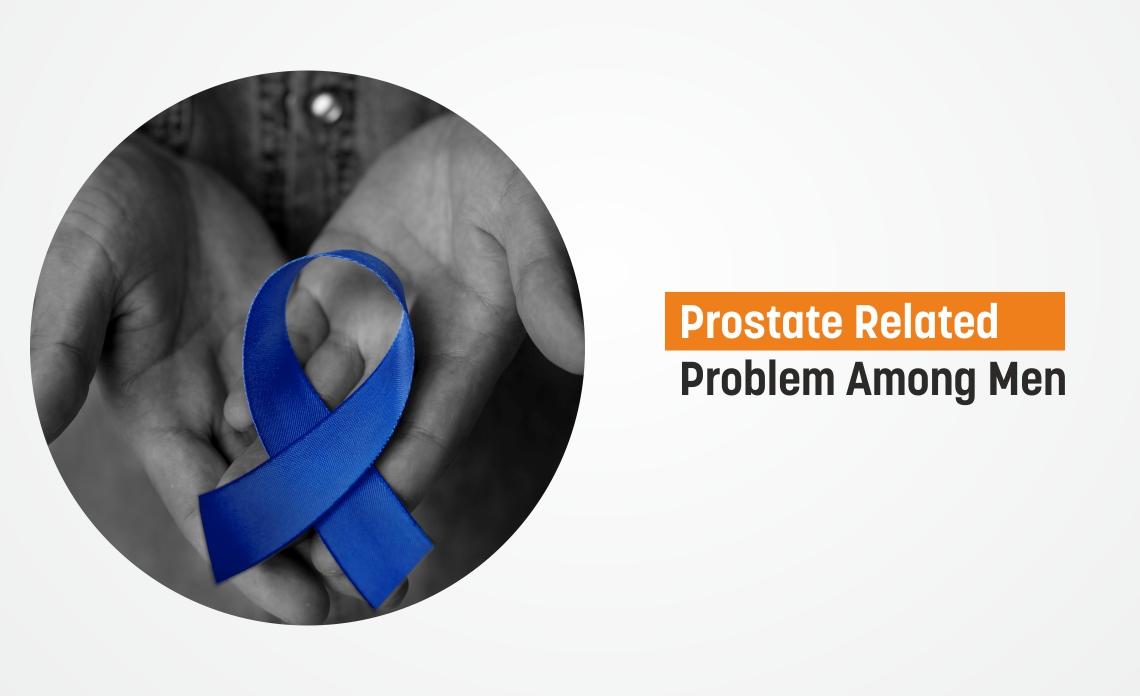The walnut-sized gland between the bladder and penis is called the Prostate. This gland helps in semen formation. The prostate grows larger with age. Most men above 40 start experiencing prostate problems. Some common problems are -Prostatitis, Prostatitis, and Prostate cancer.
Prostatitis: Inflammation of the prostate, usually by infection
- Bacterial prostatitis - an acute bacterial infection
- Non-bacterial prostatitis - inflamed prostate, also known as chronic pelvic pain syndrome (CPPS).
- Pain in the perineum
- Pain in the pelvis, genitals, lower back, and buttocks
- mkdf-full-width-inner
- A frequent need to pee
- Difficulty urinating, such as problems starting to pee
- Pain after ejaculation or during urination
Enlarged prostate: This is called benign prostatic hypertrophy or BPH.
Signs of an enlarged prostate can include
- difficulty starting or stopping urinating
- a weak flow of urine
- Urine that has an unusual color or odour
- prolonged dribbling after peeing
- Frequent and sudden urination
- Frequent urination at night
Prostate cancer: This is one of the most common cancers among men
Symptoms to check for Prostate cancer:
- Needing to pee more frequently, often during the night
- Needing to rush to the toilet
- Weak flow
- Feeling that your bladder has not fully emptied
- blood in urine or blood in semen
More Symptoms of genital problems:
- Swelling or tenderness in the scrotum
- Anything other than urine or semen comes out of the tip of your penis
- a burning sensation or pain with urination
- a painful, itchy rash or small red bumps, blisters, or sores on your penis
Urination is one of the most prominent problems for prostate issues.
Self-help tactics can be used to minimize urination trouble.
- Minimizing drinks, especially before bedtime
- Changes in diet
- Physical activity
- Pelvic floor and bladder retraining exercises to ease urinary symptoms
Tests to diagnosis:
- Digital Rectal Exam (DRE)
- Magnetic Resonance Imaging (MRI) - Prostate
- Prostate-Specific Antigen (PSA) Test
- Ultrasound - Prostate
- Urinalysis
- Urodynamic Tests
- Cystoscopy
- Abdominal Ultrasound
- Transrectal Ultrasound with Prostate Biopsy
